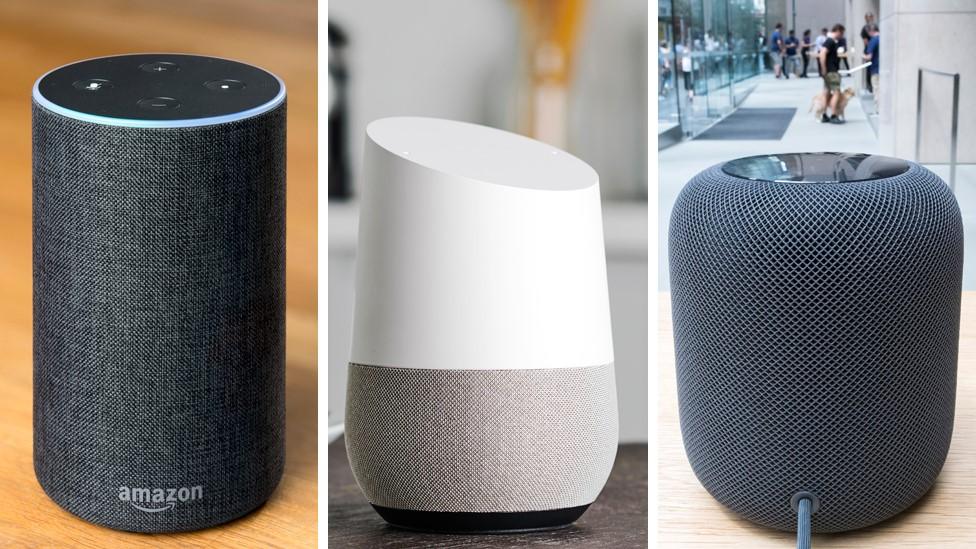Smart speakers: Are you being fooled as technology advances?
- Published

Alexa and Siri can talk the talk, but is that fooling us into thinking they can walk the walk?
The increasingly realistic-sounding voices of smart speakers mean people are beginning to blur the boundaries between how they speak to humans and machines, researchers say.
The more human they sound, the more we expect of them, said Dr Leigh Clark, of Swansea University.
He warned of ethical issues ahead as the technology advances.
Dr Clark, an expert in linguistics and human-computer interaction, said his research showed there was a "a sweet spot" for how life-like it is ideal for the smart speakers to be.
"If they're too robotic-sounding then people have low expectations of what they are capable of, and might not exploit them to their full potential," he said.
"On the other hand, if they are too human-sounding then we might expect too much - the linguistic structures we use in talking to them can be too complex for the devices to best decipher what it is we want from them."
Approximately 100 million smart speakers - the hardware that allows users to interact with voice assistants - were sold globally in 2018.
And, according to research firm Gartner, by 2020 some people will have more conversations with voice assistants than with their spouses.
Voice assistants now manage an estimated one billion tasks per month, according to the report.
'Lack of representation'
Earlier this year a UN study, external found that the predominance of female voices on digital assistants led to an increase in sexist attitudes amongst users when they did not receive the desired result, despite users knowing full-well that machines do not have a gender.
Dr Clark says this is just one of a number of issues with diversity in digital assistants.
"There's also a case for a lack of representation. Digital assistants often have educated English accents, and the lack of diversity can reinforce the impression that these voices represent authority and information," he said.
Dr Clark has run several studies with over 200 subjects on how we talk to our phones and smart speakers.
He believes that the digital voices used will soon be so convincing that there is potential for far greater ethical issues to arise.
"Google's recent assistant, Google Duplex can ring up people on your behalf and book appointments and cinema tickets etc," he added.
"Its voice is so advanced that it even adds 'mm-hmm' and 'uh' to mimic human speech patterns.
"Google have now added an alert to the start of these conversations to explain that they are a digital assistant, but as this technology continues to advance then there will be an increasing dilemma of how far it is ethical to make machines sound and behave like humans."
- Published21 May 2019

- Published10 January 2019

- Published11 April 2019
